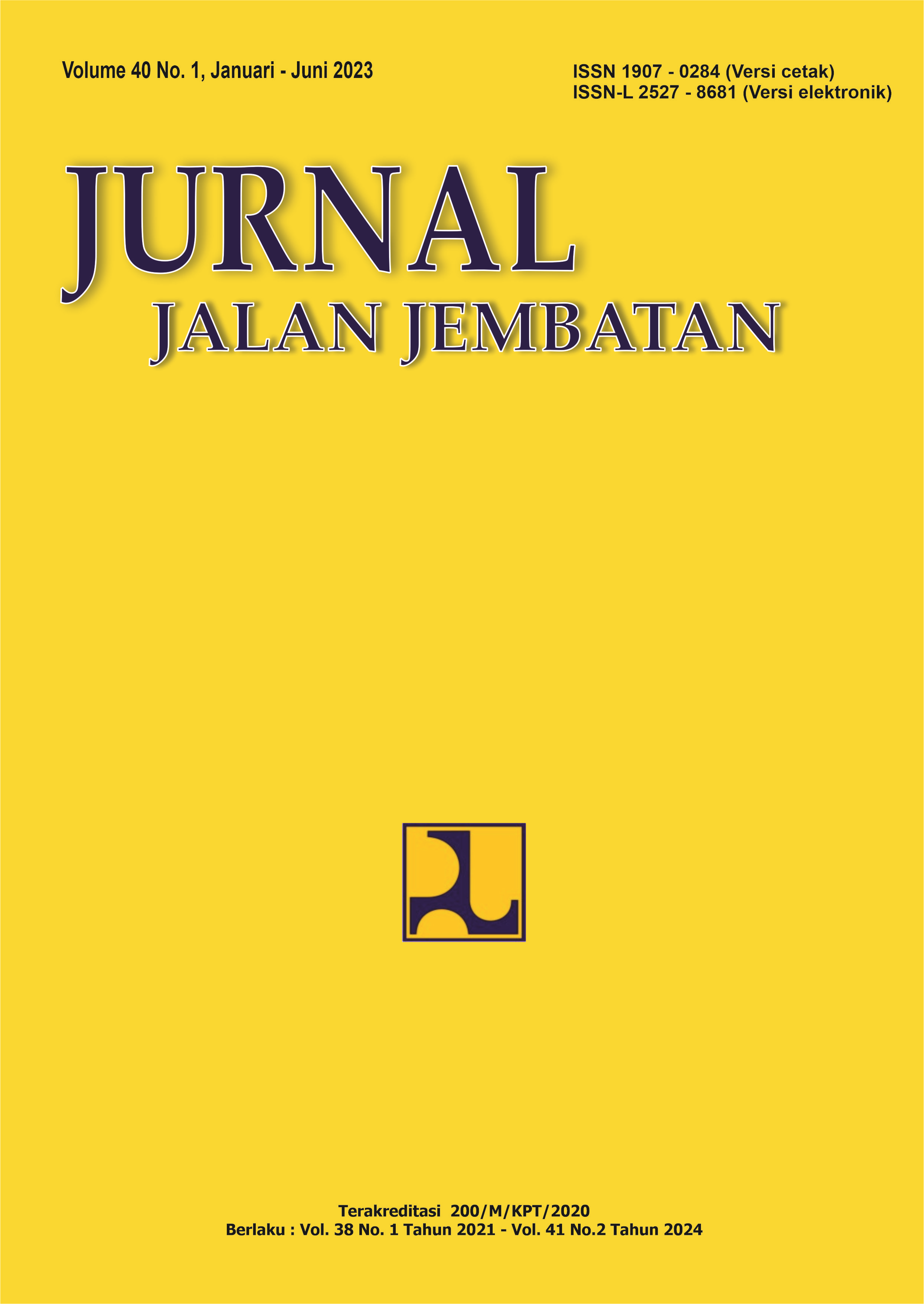ENVIRONMENTAL IMPACT COMPARISON OF LABORATORY-SCALE PRODUCTION OF POLYMER-MODIFIED ASPHALT WITH DRY AND WET MIXING METHODS USING LIFE CYCLE ASSESSMENT
Main Article Content
Abstract
This study evaluates the environmental impact of polymer-modified bituminous mix production through wet-mixed polymer-modified bitumen (PMB) and direct, dry mixing technique using the Life Cycle Assessment (LCA) method based on emission monitoring in the lab for 5 samples per each type of mix. Ethylene-Vinyl Acetate (EVA) of 5% and 6% bitumen weight was incorporated for the dry mix. The scope of this study was from raw material acquisition to lab-scale production. Emission monitoring from the sample production stage in the lab showed that producing PMB-based samples increased CO2 concentration by 21.78 – 38.3%, Volatile Organic Compound by 16.69 – 28.93%, as well as formaldehyde and particulate matter by 14.6 – 20.17% and 7 – 37%, all were due to a higher heating temperature. LCA outcomes showed that the Global Warming Potential impact category of 5 PMB sample production was 2.8kg CO2-eq, increasing by 1.1 – 4.1%. The Freshwater Aquatic Ecotoxicity Potential of 5 PMB samples production was 0.32 kg 1.4-DB eq, 9.15 – 12.33% higher than the EVA-modified specimens, and both Human Toxicity and Photochemical Oxidation increased by 14.35 – 25% to 167 kg 1.4-DB eq and 0.00081 kg C2H4 eq. The Marshall Quotient and Stability of the EVA-Modified mix were 67.7% higher and 14% lower than the PMB-based specimens with similar volumetric properties, indicating an eco-friendlier solution from the dry-blended polymer-modified asphaltic mixtures approach with similar properties.
Article Details
Authors who publish in this journal agree to the following terms:
-
Authors retain copyright and grant the journal the right of first publication with the work simultaneously licensed under a Creative Commons Attribution License, which allows others to share the work with acknowledgment of the work's authorship and initial publication in this journal.
-
Authors may enter into additional contractual arrangements for the non-exclusive distribution of the journal's published version of the work (e.g., post it to an institutional repository or publish it in a book), with acknowledgment of its initial publication in this journal.
-
Authors are permitted and encouraged to post their work online (e.g., in institutional repositories or on their website) as it can lead to productive exchanges, as well as earlier and greater citation of the published work.
Each submitted manuscript must be accompanied by a "Manuscript Originality Statement" and a "Copyright Transfer Statement".

